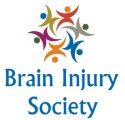Category Archives: Newsletters
Social Security Disability and Drug Addiction
Drug and alcohol addiction is a debilitating condition that decreases the ability of the addict to successfully function at home and work. Those under the influence of drugs or alcohol exhibit symptoms such as drowsiness, slurred speech, poor judgment, paranoia, confusion, and the inability to concentrate. For many addicts these symptoms result in a reduction in productivity in the workplace to the point where the addict is unable to sustain meaningful employment. Some believe that this incapacitating result of addiction is comparable to the debilitating effects of health conditions unrelated to drug addiction in that the end result is the inability to effectively function in the workplace. However, the Social …
Spring 2000 Newsletter
This publication is delivered free to Brain Injury Society members and is free at symposia, workshops and in-service training. Circulation Destinations: Australia, Canada, Europe, Israel, Japan, Pakistan, Johannesburg, Switzerland, and United States.
Winter 1999 Newsletter
Serving Acquired (includes Traumatic) Brain Injured Individuals and Family Members Volume 3, Issue 3 Quarterly Newsletter-Winter 2000
Spring/Summer 1999 Issue
Volume 2, Number 4 “WE ARE HERE WHEN YOU NEED US.” Spring/Summer Issue 1999
Newsletter: Winter 98-99 Edition
Volume 2 Number 2 “WE ARE HERE WHEN YOU NEED US.” Autumn- Winter Issue 1998/99 VISION IMPAIRMENTS The overlooked head injury disorder. As sighted beings, seeing is 80% of what we do. Even a small change in vision can have a powerful impact on cognitive and general functioning. There are vision trauma clinics that utilize in new techniques and rehabilitation therapies. there is also holistic vision care clinic specializing in rehabilitative therapies. Both treat vision related problems resulting from head trauma, whiplash and stroke. In addition, the specialists train the individuals’ eyes to returning to a more normal sight restored and relief of eyestrain resulting from additional strain of reading …
Newsletter 1998 Fall Issue
Volume 1 Number 4 Fall Issue 1998 BRAIN INJURY SOCIETY AWARDS DINNER FOR SERVICE TO THE BRAIN INJURED ANNOUNCED Awards Dinner for Wednesday, October 21, 1998, cocktails at 5:30 PM and dinner will begin at 6:30PM at Mendy’s West, 210 West 70th Street, New York City, NY. The award recipients are Leonard Diller, Ph.D., Rolland Parker, Ph.D. Rabbi Israel S. Kivelevitz and Marcia R. Eisenberg, Esq.. Leonard Diller, Ph.D. is being honored for his work in the United States and in Israel on behalf of adults and children with brain injury in the areas of acquired and traumatic. Rolland S. Parker, Ph.D., is being honored for his dedication to the …
Newsletter 1998 Summer Issue
MEDICATION AND BRAIN INJURY Survivors of brain injury may be given a variety of medications. In acute situations, lives may be saved by use of certain drugs. Steroids, for example, may reduce swelling after trauma. Anticonvulsants are used to prevent seizures. These drugs all have potential side effects, requiring assessment of the risks and the benefits. Unfortunately, patients and their families do not always get a clear picture of what is being done. They might incorrectly assume that the steroids used in this situation are the same drugs that are abused by some athletes to build muscle mass, when in fact they are quite different. They may also focus on …
Newsletter 1998 Spring Issue
Volume 1 Number 3 Spring Issue 1998 Help us select the new name of our newsletter! Scroll down to the bottom of this page to cast your vote! VISION AND ACQUIRED BRAIN INJURY Neera Kapoor, O.D., M.S. Acquired brain injury (ABI) can occur secondary to head trauma (i.e. a blow to the head), cerebral vascular accident (i.e. a stroke), or post-surgical complications (i.e. post-tumor removal). Once a ABI has been sustained, rehabilitation is often necessary. The types of rehabilitation that usually come to mind are vestibular (i.e. balance), physical, occupational, speech, cognitive, and psychological therapy. Although accurate and efficient visual skills are required and involved in many types of rehabilitation, …
Newsletter 1997-98 Winter Issue
TAKING ALL BRAIN INJURIES SERIOUSLY Edwin F. Richter III, M.D. There is a category of brain injury that deserves more respect. Some patients arrive at an emergency room after only a brief loss or alteration of consciousness. They may score well on the Glasgow Coma Scale and other quick assessments of neurologic function. Scans and x-rays may be normal. Their complaints of headache and confusion can be written off as minor effects of a “concussion”. They are often told that the problems will just go away in a day or two. This prediction does come true for some patients, but for others their problems may last for years.
